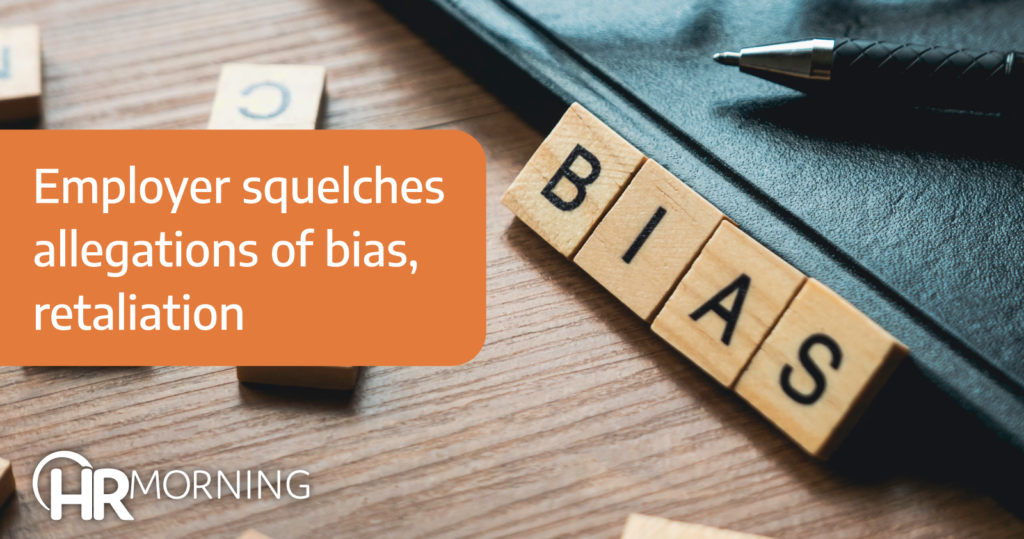Below is a review of the posts (on Facebook, LinkedIn, and Twitter) from the past week. You can check out the full posts by clicking on the links.

In the post on Sunday 9/18/2022 we talked about the causes of quiet quitting and how employers might respond. First, what is “quiet quitting”? It is doing your job, and nothing more. That’s it. To put it in per-spective, think about what Mr. Wonderful on Shark Tank, Kevin O’Leary, said as is noted in the post. And what does the author of the post think is one reason behind quiet quitting? At-will employment. And there are more suggestions as noted in the post. Some of these things are being pushed in pending legislation, others are not. But back to what Mr. Wonderful said. What about those pesky wage and hour laws?
TAKEAWAY: Put your expectations on the same page as those of your employees – things will be so much easier that way.

The post on Monday 9/19/2022 taught us about the role of state Attorneys General in protecting workers’ rights. It’s more than you probably think or know. And since 2015, ten states have dedicated labor units of various kinds, several jurisdictions have passed legislation granting state AGs expanded jurisdiction allowing them to address labor violations, and many AGs have brought cases to enforce workers’ basic rights. If you are unsure of the role of AGs, it is described in the post. Examples of what AGs have done is pursuing employers’ wage theft, misclassi-fication of workers as independent contractors instead of as employees, endangering workers, and more as listed in the post. AGs have obtained injunctive relief and more. And the list of some of what AGs have done just since Labor Day 2021 is impressive: suing for violations of minimum wage law, criminal cases where a contractor required workers to kick back money each week and another employer didn’t pay wages to employees, and more. The Pennsylvania AG brought suit for labor trafficking (details are in the post). Other AG actions have been in the area of anti-competitive labor practices (described in the post) and paid sick leave including one case involving 12,0000 workers (yes, again in the post). Other cases have been about workplace safety, discrimination, and more as detailed in the post. There have also been a few AGs (including those in Arizona and Texas) who filed suit to stop a federal rule increasing pay for employees of federal contractors.
TAKEAWAY: The actions of state AGs might have an effect – positive or negative – on your job that you are not even aware of. Pay attention to what they advocate and for whom.

The post on Tuesday 9/20/2022 told us 9 things to know about homeowner and condo associations. We all know that owners in condominium and homeowner associations pay a monthly (or other periodic) fee (often called dues or assessments) to cover services they receive from the association. So what are some other things to know? All associations (at least all in PA) will have a Declaration of Covenants, Conditions and Restrictions (sometimes referred to as the Declaration, covenants, or CC&Rs). All owners and residents must abide by the restrictions in the Declaration. These can (and often do) include things like the color and type of materials for siding and roofs and decks, what can be parked in driveways (yes, the driveway to your house!), what type of decorations can be put up and when, and more as in the post. Next are the association’s amenities. Sometimes it is nonexistent or minimal, other times it is like living in the lap of luxury. But this might also include utilities and other services (such as those identified in the post) that you would not otherwise think twice about but must when living in a community association. You also want and need to know about the Association’s finances. What is budgeted now and in the future? How will that impact you? Things like reserves and other plans (discussed in the post) are important. The legal authority held by the Association is also important – what it can and cannot do to enforce the Declaration (and Bylaws and any Rules/Regulations). Some examples are in the post. There are other important things to know too before you decide to buy in a community association, including pros and cons of associations – see the post for those.
TAKEAWAY: Life in a condominium or homeowner association can by idyllic, or hellish, but know what is expected or required by you and the association before you buy. Consult a community association lawyer to discuss the legal documents.

The post on Wednesday 9/21/2022 alerted us to something just in: EEOC sues staffing agency and employer for discriminatory hiring (based on sex). The suit was filed mid-September against a national staffing agency and a commercial laundry facility serving the hospitality industry. The EEOC alleges discriminatory hiring based on race, national origin and sex. One allegation is that the defendants failed to recruit and hire Black, Asian and White applicants for low-skill positions since 2015. Other allegations are noted in the post. The laws implicated are Title VII and the ADA (how is noted in the post). The suit was filed after pre-litigation conciliation failed. So far there is no (public) comment or reaction by the defendants.
TAKEAWAY: Treat all employees and applicants the same and definitely do not discriminate on the basis of non-job-related protected characteristics.

In the post on Thursday 9/22/2022 we were told to speak now or forever hold your peace – National Labor Relations Board proposes new Rules on joint employer status. And remember that because of the reach of NLRA Section 7 (to ALL workplaces, union or not), you care about this. The latest proposal came out September 7, 2022. It includes that an employer of joint employees is a joint employer if there is “an employ-ment relationship with those employees under established common-law agency principles and the employer shares or co-determines those matters governing at least one of the employees’ essential terms and conditions of employment.” Control or management has long been an issue when defining joint employment. Now the proposed Rule puts back a strong indirect control component under the condition noted in the post. And the effect of that? Broader impact of the Rule and the possibility that more will be considered joint employers. Part of the definition limits those things that will not be considered under the control determination; they are noted in the post. Especially if you use contractors or temporary workers, pay attention.
TAKEAWAY: Determination as to whether you are a joint employer may impact contractual provisions for management, taxes, indemnification, and more (as noted in the post), so definitely discuss all of this with an employment lawyer.

The post on Friday 9/23/2022 was about Condo & HOA Q&A: Board terms, owner doing work without Board approval, and more. Board members are (normally) elected or appointed for a set term. So what happens if they resign or are removed prior to the expiration of that term? It depends on state law and (usually) the Bylaws. An example is discussed in the post. Similarly, what happens if an owner is doing work on a common or limited common element without required approval? Well, it depends – on what the Declaration, Bylaws and Rules/Regulations (and possibly even state law) provide and what if any procedure is in place. Examples of enforcement options are in the post (and include contacting a community association lawyer). There are additional common issues that are also discussed in the post.
TAKEAWAY: Life in a condominium or homeowner association is subject to various rights and restrictions – know what they are and how they can be enforced. A community association lawyer can help.

Finally, in the post yesterday 9/24/2022, we read about bias and retaliation claims: new court ruling shows keys to beating them. Note that while the suit involved claims under state law, much of what it teaches also applies to claims under Title VII, so employers should pay attention. Jon Crossland worked in a sales position for WideOrbit, Inc. The suit alleged age discrimination, meaning that an adverse action was taken on account of age. How “adverse action” is defined (in the applicable state law, but again similar to how it plays out under Title VII) is in the post. The suit alleges that WideOrbit not only took adverse action against Crossland based on his age, but that it retaliated against him for complaining about two things (both of which are listed in the post). The trial court ruled in favor of WideOrbit and an appeal was taken. The appeals court said that the first threshold was whether Crossland was performing satisfactorily at the time of termination. Its analysis on that point is in the post. The court then went into the allegations of retaliation and the facts that were asserted in support of the allegations. The outcome on appeal is of course in the post and serves as a good roadmap for both employees and employers when it comes to these types of claims.
TAKEAWAY: Employers who set performance standards and uniformly hold employees to those standards, especially if documented, will have help in defending against allegations of illegal adverse action.

 York, Pennsylvania 17403
York, Pennsylvania 17403